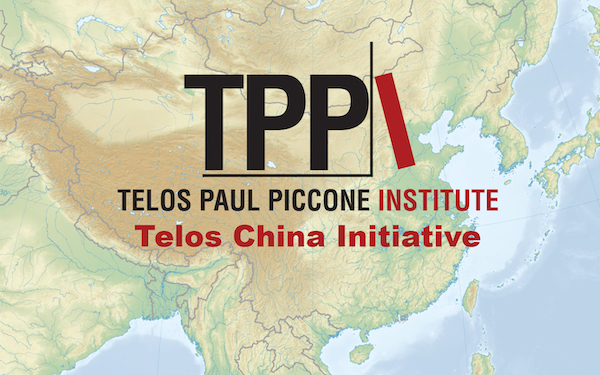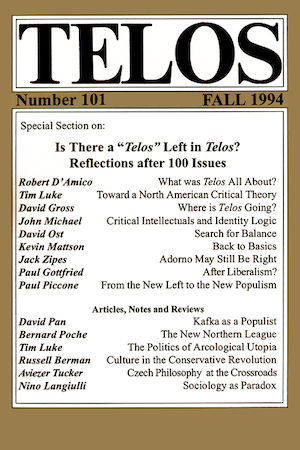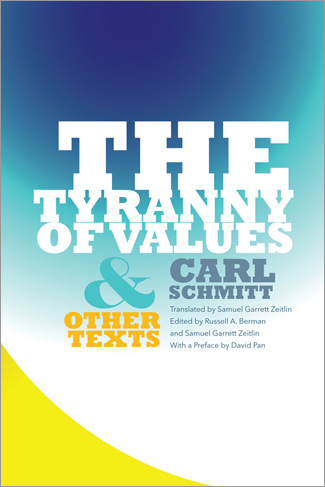Announcing a new Telos-Paul Piccone Institute webinar series, “China Keywords,” beginning Thursday, March 21, at 10 a.m. Eastern Time.
Register for the event here.
 Tipping our hat to Keywords: A Vocabulary of Culture and Society, by Raymond Williams, the Telos-Paul Piccone Institute announces its newest webinar series: “China Keywords.” Each webinar will introduce and explore a single concept essential for understanding contemporary Chinese social and political theory. The series will illuminate these concepts with an eye toward non-specialists in the West, while also addressing deep contestations of interest to experts in the field. “China Keywords” is part of TPPI's larger Telos China Initiative. Tipping our hat to Keywords: A Vocabulary of Culture and Society, by Raymond Williams, the Telos-Paul Piccone Institute announces its newest webinar series: “China Keywords.” Each webinar will introduce and explore a single concept essential for understanding contemporary Chinese social and political theory. The series will illuminate these concepts with an eye toward non-specialists in the West, while also addressing deep contestations of interest to experts in the field. “China Keywords” is part of TPPI's larger Telos China Initiative.
Continue reading →
By Florindo Volpacchio · Wednesday, December 28, 2022 If a journal manages to survive for 100 issues, it is reasonable to assume that the editorial board has managed to reach some sort of internal consensus and can finally rest on its laurels. Such is not the case with Telos. . . . After all these years, nothing seems to be settled and [Telos] remains a hopelessly heterogeneous group still trying to come to some agreement concerning many crucial and not-so-crucial issues. . . . This is why this theoretical bellum omnium contra omnes may be interpreted as evidence of lingering internal vitality, an unwillingness to take anything for granted, and a suspicion of all positions even faintly resembling conformism and passivity.
 With those words from Telos 101 (Fall 1994), Paul Piccone launched his critique of those who felt Telos had lost its direction and had settled into the role of the cranky old uncle of intellectual journals. Having just celebrated its 200th issue in its 54th year, those words still speak to the current state of the intellectual project he launched back in 1968. With those words from Telos 101 (Fall 1994), Paul Piccone launched his critique of those who felt Telos had lost its direction and had settled into the role of the cranky old uncle of intellectual journals. Having just celebrated its 200th issue in its 54th year, those words still speak to the current state of the intellectual project he launched back in 1968.
Piccone’s critique of his critics, “From the New Left to the New Populism,” was intended not to lay claim to any settled doctrine for Telos but to demonstrate the journal’s ability to constantly rethink its position among current debates along the entire ideological spectrum. While the bellum omnium contra omnes Piccone refers to in his article specifically refers to Telos‘s own family, I think it is more than fair to say it was applied to any and all who asserted a suspicious and artificial ground for emancipation. Toward this end, Piccone begins by providing his own critique of the Western Marxist tradition out of which Telos arose. This in itself, in its pure compactness, is a tour de force of intellectual history and should be read by all those who seek an origin story, or who simply need to have their revision revised.
Continue reading →
By Telos Press · Friday, June 4, 2021 In today’s episode of the Telos Press Podcast, Camelia Raghinaru talks with Michael Millerman about his article “The Ethnosociological and Existential Dimensions of Alexander Dugin’s Populism,” from Telos 193 (Winter 2020). An excerpt of the article appears here. To learn how your university can subscribe to Telos, visit our library recommendation page. Print copies of Telos 193 are available for purchase in our store.
Listen to the podcast here.
Continue reading →
By Telos Press · Monday, February 22, 2021 In the Spring issue of American Affairs, Blake Smith writes at length about Carl Schmitt’s “The Tyranny of Values,” the title essay of the collection The Tyranny of Values and Other Texts, published by Telos Press. Edited by Russell A. Berman and Samuel Garrett Zeitlin, translated by Samuel Garrett Zeitlin, and with a preface by David Pan, Schmitt’s The Tyranny of Values and Other Texts is now available for purchase in our online store. Save 20% off the list price by using the coupon code BOOKS20 during the checkout process.
An excerpt from the review:
 To those familiar with his most famous writings, it may seem that Carl Schmitt is an enemy of liberalism. In texts such as The Concept of the Political (1932) and Legality and Legitimacy (1932), Schmitt critiqued the Weimar Republic and the liberal tradition, the weaknesses of which Weimar seemed to embody. Liberalism, Schmitt argued, depends on systematic neutralizations—fictions by which all individuals and points of view are imagined to be equal, and by which the confrontations of political life seem to be transformed into peaceful, rule-governed debates with open-ended, undetermined outcomes. His writings during the Nazi era endorsed a new understanding of politics in which such deceptive procedures are replaced by the decisions of a charismatic leader who acts on behalf of a homogeneous people against its internal and external foes. Radicals of the Right and Left have found inspiration in Schmitt’s analysis of liberalism and calls for moving beyond it to a realistic and engaged theory that recognizes the insuperable conflicts at the heart of politics. To those familiar with his most famous writings, it may seem that Carl Schmitt is an enemy of liberalism. In texts such as The Concept of the Political (1932) and Legality and Legitimacy (1932), Schmitt critiqued the Weimar Republic and the liberal tradition, the weaknesses of which Weimar seemed to embody. Liberalism, Schmitt argued, depends on systematic neutralizations—fictions by which all individuals and points of view are imagined to be equal, and by which the confrontations of political life seem to be transformed into peaceful, rule-governed debates with open-ended, undetermined outcomes. His writings during the Nazi era endorsed a new understanding of politics in which such deceptive procedures are replaced by the decisions of a charismatic leader who acts on behalf of a homogeneous people against its internal and external foes. Radicals of the Right and Left have found inspiration in Schmitt’s analysis of liberalism and calls for moving beyond it to a realistic and engaged theory that recognizes the insuperable conflicts at the heart of politics.
Continue reading →
By Telos Press · Thursday, January 14, 2021 In today’s episode of the Telos Press Podcast, Camelia Raghinaru talks with Annabel Herzog about her article “When Arendt Said ‘We’: Jewish Identity in Hannah Arendt’s Thought,” from Telos 192 (Fall 2020). An excerpt of the article appears here. If your university has an online subscription to Telos, you can read the full article at the Telos Online website. For non-subscribers, learn how your university can begin a subscription to Telos at our library recommendation page. Purchase a print copy of Telos 192 in our online store.
Listen to the podcast here.
Continue reading →
By Telos Press · Thursday, January 7, 2021 In today’s episode of the Telos Press Podcast, Camelia Raghinaru talks with Lenka Ucnik about her article “Conscience, Morality, Judgment: The Bond between Thinking and Political Action in Hannah Arendt,” from Telos 192 (Fall 2020). An excerpt of the article appears here. If your university has an online subscription to Telos, you can read the full article at the Telos Online website. For non-subscribers, learn how your university can begin a subscription to Telos at our library recommendation page. Purchase a print copy of Telos 192 in our online store.
Listen to the podcast here.
Continue reading →
|
|
 Tipping our hat to Keywords: A Vocabulary of Culture and Society, by Raymond Williams, the Telos-Paul Piccone Institute announces its newest webinar series: “China Keywords.” Each webinar will introduce and explore a single concept essential for understanding contemporary Chinese social and political theory. The series will illuminate these concepts with an eye toward non-specialists in the West, while also addressing deep contestations of interest to experts in the field. “China Keywords” is part of TPPI's larger Telos China Initiative.
Tipping our hat to Keywords: A Vocabulary of Culture and Society, by Raymond Williams, the Telos-Paul Piccone Institute announces its newest webinar series: “China Keywords.” Each webinar will introduce and explore a single concept essential for understanding contemporary Chinese social and political theory. The series will illuminate these concepts with an eye toward non-specialists in the West, while also addressing deep contestations of interest to experts in the field. “China Keywords” is part of TPPI's larger Telos China Initiative.



